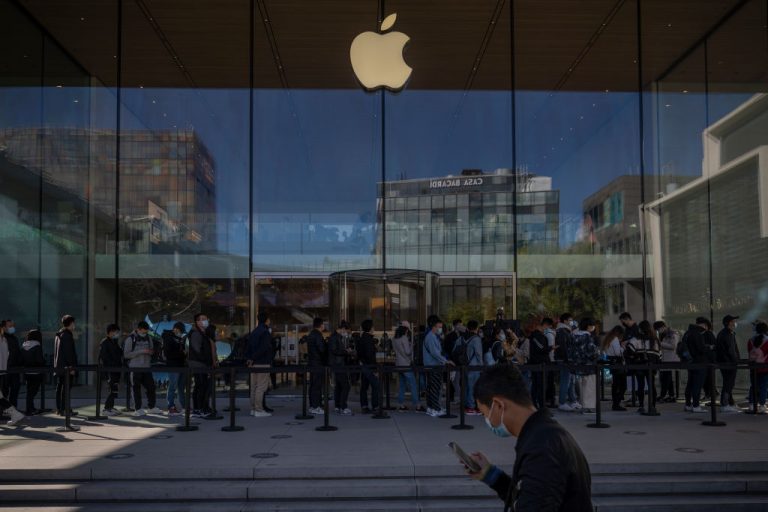In a bid to retain its market presence in China, tech giant Apple is following the dictates of the Chinese Communist Party (CCP), opting to deal with pro-CCP suppliers while ditching Taiwanese companies. A report by The Information revealed more details on Apple’s attempt to please an authoritarian regime in pursuit of profits.
According to the report, Apple is looking to replace Taiwanese manufacturer Foxconn with Chinese supplier Luxshare. The decision comes as part of the company’s $275 billion agreement with the communist regime that was signed back in 2016.
The deal was made to prevent Chinese regulators from troubling the company as Apple did not want to lose the China market which accounts for around a fifth of its annual revenue. The country’s annual sales growth clocked in at an impressive 82 percent in the most recent fourth quarter.
Apple CEO Tim Cook apparently lobbied Chinese officials who were unhappy that the company was not contributing much to the domestic economy. The deal allowed Apple to gain important legal exemptions. In exchange, Apple agreed to collaborate with Chinese universities on technologies, use more China-made components in its devices, enter into deals with local software firms, and make direct investments in Chinese tech firms.
A year after Apple signed the deal, Luxshare was chosen to manufacture AirPod earbuds. The decision came as a big blow to Taiwanese firms that have been a major supplier to Apple for many years.
Success
You are now signed up for our newsletter
Success
Check your email to complete sign up
Foxconn is said to be so worried about Apple’s slow shift to Luxshare that it has set up a team to study the Chinese company. At present, Luxshare is already ahead of Foxconn when it comes to market capitalization. Some speculate that Luxshare could soon unseat Foxconn as Apple’s primary supplier.
Luxshare is building a massive manufacturing complex in the eastern part of China, which it believes will allow China to break the dominance that Taiwanese firms have when it comes to assembling iPhones.
The plant, which is said to be 285,000 sq. meters, covers an area equivalent to the size of 40 football fields. Built with an investment of 11 billion yuan (US$1.72 billion), the facility is expected to output millions of iPhones when fully operational.
“I went on a business trip nearby and saw Luxshare’s new manufacturing complex. I am shocked by the scale of the complex and the possible capacity it could build for iPhones… The day it threatens Foxconn and Pegatron might arrive earlier than people’s estimate judging from the progress of the new facility,” an Apple supplier executive told Nikkei Asia.
When news of Apple’s $275 billion deal with Beijing broke, it attracted widespread attention in the United States, with some criticizing the company for bowing down before the communist regime.
Chinese state-backed Global Times argued that the attacks on Apple’s ties with China are “clearly driven by the political correctness of Sinophobia.” Forcing American companies to decouple from China is akin to decoupling them from opportunities and gains, it argued.
In an interview with SCMP, Dan Wang, chief economist for Hang Seng Bank China, pointed out that the controversy surrounding Apple’s $275 billion investment might reflect America’s intention to decouple its tech sector from China.
“The controversy partially reflects the US intention to decouple in the tech sector with China… As China has become one of the largest markets for Apple and many other foreign companies … [multinational corporations] are also more willing to engage in tech collaboration with their Chinese counterparts, since they consider China an important market rather than just a manufacturing center,” Wang said.














